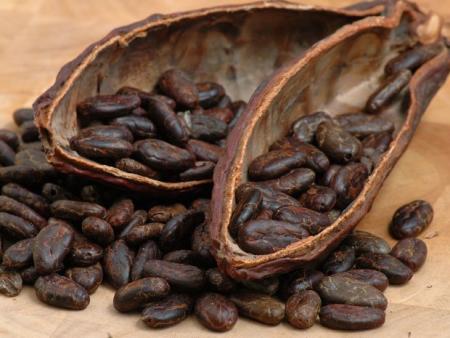by Reuters
ACCRA/ABIDJAN, June 26 (Reuters) - Up to 80,000 tonnes of cocoa beans have been smuggled into Ghana from neighbouring Ivory Coast since the start of April, as Ivorian growers take advantage of higher prices in the neighbouring country, exporters said on Monday.
Further trafficking is expected to inflate Ghanaian output from its 11-week light cocoa crop, which opened on June 9.
The surge in smuggling has been driven by top producer Ivory Coast's decision to slash its guaranteed farmer price by 36 percent to 700 CFA francs ($1.19) per kilogram at the start of its April-to-September mid-crop due to a wave of export contract defaults and falling world prices.
Ghana, the world's number two cocoa grower, maintained its farmgate price at $1,914 per tonne, creating a price gap of more than $700 per tonne that the exporters said has fuelled a wave of cross-border smuggling.
Estimates of the volumes already smuggled since the start of April given by three exporters ranged from 70,000 to 80,000 tonnes with total trafficking of Ivorian beans into Ghana predicted to reach between 120,000 to 140,000 tonnes.
"I think we are easily at 70,000 tonnes from early April up to last week," said one Abidjan-based exporter. "We're expecting to hit some 120,000 tonnes by the end of the season, because the peak here will be in July or August and a big part of those beans will end up in Ghana."
Production from Ghana's main crop, which closed on May 18, hit a six-year high of 882,175 tonnes, regulator Cocobod's chief executive Joseph Boahen Aidoo told Reuters last week.
Cocobod has forecast purchases from the light crop at 70,000 tonnes of beans. However, one Cocobod official told Reuters last week that they could hit 100,000 tonnes, mainly due to good weather conditions.
The official said Cocobod was aware of possible smuggling from Ivory Coast and had put in place tighter border and quality controls.
Cocoa smuggling between Ghana and Ivory Coast is quite common, with its direction shifting back and forth depending on the price difference between the two countries.
Farmers and crop experts in Ghana's eastern cocoa belt said they expected overall production for the season to rise by a third due to good rains. It could also benefit from government efforts to clamp down on illegal gold mining.
"It's been raining and our cherelles (young pods) are coming out well but the illegal miners are destroying the farms with excavators,"
Mark Dari, who farms 15 hectares in the eastern region town of Kibi, told Reuters.
To read the full piece from Mailonline, click here.

